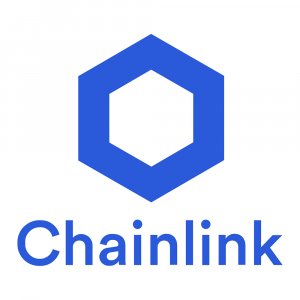As the most popular and successful cryptocurrency, Bitcoin enjoys most of the spotlight. For this reason, it’s easy for most people to think that cryptocurrency is synonymous with Bitcoin. Indeed, a YouGov study reported 75% of US adults knew about Bitcoin, while other cryptocurrencies such as Bitcoin Cash and Ethereum were each known by less than 30% of the population.
If you’re an aspiring user of cryptocurrencies, or simply interested in that world, it’s important to acquaint yourself with other forces in the space. This article takes a look at other cryptocurrencies that have proved themselves worthy of attention and, of course, investor money. But before we get into that, let’s do a refresher on this new and exciting asset class.
What are Cryptocurrencies?
It’s necessary to do a recap of what cryptocurrencies are because many people associate the word cryptocurrency with just Bitcoin. So, when we are talking about cryptocurrencies and altcoins, what do we mean? A cryptocurrency, at its most basic definition, is a purely digital and internet-based currency that’s secured with modern cryptography and utilizes a ledger that is distributed across network participants. The most common type of distributed ledger is a blockchain. The blockchain concept always existed in the computer space but was only actualized in 2009 by the creator of Bitcoin, Satoshi Nakamoto.
The ‘crypto’ in cryptocurrency refers to the cryptography that is used to encrypt and hence secure cryptocurrencies and transactions. Cryptocurrencies subscribe to the tenet of decentralization, which means free from state manipulation or control and self-issuance. Cryptocurrencies are designed as code – almost always open source, with in-built mechanisms for issuance. These mechanisms vary from one cryptocurrency to another.
As you probably already know, Bitcoin is the first-ever and most successful of cryptocurrencies. All other cryptocurrencies apart from bitcoin are collectively referred to as altcoins. Currently, there are more than 5,000 altcoins, according to Coinmarketcap. The total market valuation of cryptocurrencies is currently 269 billion, with Bitcoin taking the lion’s share with 62.3 billion in market valuation. Many of these coins have been designed to improve on Bitcoin in one way or another – either on security or speed or ease of storage (e.g., in terms of space).
With that background, let’s look at some of the most important cryptocurrencies apart from Bitcoin.
1. Ethereum (ETH)
Ethereum is a cryptocurrency and blockchain launched in 2015. The project is the brainchild of Vitalik Buterin, a Russian-Canadian programmer. Industry experts view Ethereum is the next most important crypto after Bitcoin. Let’s examine why.

Ethereum is the next cryptocurrency that brought a ground-breaking product into the blockchain space. The project is more than a digital finance platform. Its main objective is to be a decentralized applications and smart contracts platform. Decentralized applications (DApps) are a new kind of application that can run without downtime and are free from control, manipulation, and censorship by a third party.
Smart contracts are a new kind of contract – not unlike the traditional contracts, but this time is purely digital, self-enforcing, unalterable, and completely transparent to all relevant parties.
Applications on the Ethereum platform are powered by its native token called ether (ETH). Ether is the currency in which people using the Ethereum blockchain pay in transaction fees. As an investor, you can also use Ether as a store of value. Ether is the second most successful cryptocurrency after Bitcoin – even though it trails behind the dominant currency considerably.
In 2014, Ethereum launched a pre-sale (an initial coin offering ICO) to fund the project. The effort was incredibly successful and is credited with helping usher in the age of the ICO. Ethereum has also weathered one of the biggest security breaches in the history of cryptocurrency – the DAO attack in 2016. This attack led to the split of the Ethereum blockchain, birthing Ethereum (ETH) Ethereum Classic (ETC). As of July 18, 2020, ETH has a market capitalization of $26 billion, and one ETH is going for $232.93.
2. Ripple (XRP)
Launched in 2012, Ripple is a cryptocurrency and a real-time digital payments network. The project was created by Chris Larsen and Jed McCaleb.

Ripple’s protocol facilitates the global, peer-to-peer, decentralized, and real-time exchange and transfer of money in any currency, whether it’s the US dollar, Japanese Yen, Bitcoin, Ethereum, and so on. XRP can settle transactions within 3 to 5 seconds.
XRP is the platform-specific asset of the Ripple network. Individuals can exchange XRP between each other without the need for an intermediary. It’s the go-between currency in any exchange that happens on the Ripple network.
Ripple’s transaction confirmation mechanism differs from that of Bitcoin in that it does not utilize ‘mining.’ All XRP tokens were ‘pre-mined’ or ‘minted’ before launch, meaning there is no release of new coins over time. Indeed, Ripple ‘burns’ XRP tokens immediately after they facilitate a transaction, in a bid to avoid inflation. Ripple’s no-mining approach is a massive save on power, and it also considerably aids the network to achieve incomparably faster transactions.
For a long time, XRP occupied the third spot in the crypto market. However, it has been knocked down to the fourth spot. As of July 18, 2020, XRP is trading at $0. 194295, with a market cap of $8.6 billion.
3. Litecoin (LTC)
Litecoin is a cryptocurrency that is modeled after Bitcoin but aims to be more lightweight and scalable. It was launched in 2011 and is a brainchild of former MIT graduate and Google engineer Charlie Lee.

Litecoin is often called the “silver to bitcoin’s gold.” It’s a “lite” version of Bitcoin only with more coins, faster transactions, and a different hashing algorithm. While Bitcoin uses the SHA-256 algorithm, Litecoin utilizes one known as “Scrypt.”
Another difference is Bitcoin’s circulation can never exceed 21 million, while Litecoin is designed to help 84 million coins. This might not mean much for either currency in terms of real-world usage since both are divisible to very tiny amounts. Litecoin is also way faster in terms of transaction confirmation time. While Bitcoin’s transactions can take up to 10 minutes, Litecoin takes about 2.5 minutes. Litecoin is also one of the cryptocurrencies that have enjoyed significant merchant adoption.
So how is Litecoin performing today? Well, as of July 18, 2020, Litecoin traded at $41.95, with a market cap and rank of 2.7 billion and #9 respectively.
4. Chainlink (LINK)
Launched in September 2017, Chainlink, a project by FinTech company SmartContract Chainlink Limited SEZC, has seen the success that few cryptocurrencies do within such a short period. Perhaps this is because of its unique proposition of providing an oracle system that allows on-chain contracts to utilize external data, greatly expanding the capability of smart contracts.

Courtesy of this feature, Chainlink has deep-running relationships with a lot of other innovative blockchain projects, a factor that’s given it a leg-up in the space. Some of these partnerships include Synthetix, Loopring, Aave, Ampleforth, and Binance. The project has also managed to secure other significant partnerships out of the blockchain space, including Google, Oracle, Gartner, Brave New Coin, and Web3 Foundation.
Thus far, Chainlink has no competitor, and this has given it the dominance as far as its selling point is concerned. As of July 19, 2018, Chainlink’s price was $7.96, and, with a market cap of 2.8 billion, it was the 8th largest cryptocurrency.






